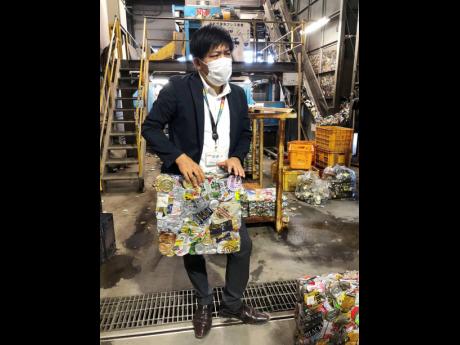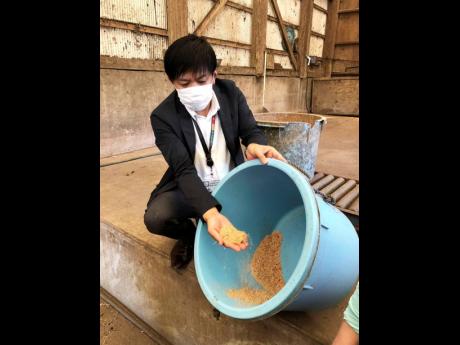Osaki’s success at recycling waste, reducing landfill volume a model for Jamaica
OSAKI, Japan:
CHANGING MINDSETS and improving the environmental impact are the pillars which operators of a successful recycling plant in the township of Osaki in Japan thrive on, making their community a world model.
Complaints about garbage collection, containerisation, and truck capacity - common in Jamaica - are concerns the 12,331 population of Osaki Town do not have to contend with in the last 14 years.
Osaki Town is located in southwestern Japan on the island of Kyushu, near the historic port city of Kagoshima.
Osaki's transformation from a nondescript rural town to Japan's leader in environmental best practices began with its landfill when municipal officials realised that the timespan for the retirement of its waste facility was five years, instead of two decades.
That's when they got serious about recycling, forging a partnership with area residents and the national government, which provided data and recycling guidance. The initiative worked. Recycling has significantly reduced pressure on the region's landfill, which is shared with a neighbouring town. In the process, the intense focus has remade the town with vast acreages of farmland into an environmentally friendly space.
Everything from trees to grass and kitchen waste is recycled to make compost, a thriving venture which is resold cheaply. But officials will tell you that compost sale is secondary, when compared to the significant improvement in the environmental impact.
Project Manager Shizuto Takehara told journalists that garbage can be converted to compost in five months.
“There is no special technique to make compost. You need just natural micro-organisms and it take like half a year,” Takehara explained through an interpreter. “We cut everything to small pieces,” he added.
Sixty per cent of garbage in the township are leaves, branches and household waste.
The compost is popular in the largely farming community.
Prime Minister Andrew Holness has announced that 50 new garbage trucks are en route to Jamaica. However, there are concerns that the number is woefully inadequate because of the severity of the island's waste management crisis. Also, Holness announced plans for a waste-to-energy project that is expected to generate substantial benefits for the country.
Executive director of the National Solid Waste Management Authority, Audley Gordon, in an April interview with The Gleaner said that 67 per cent of waste collected by the agency is compostable.
In Osaki, Takehara said it took a herculean effort to make the process transparent, but it worked: 450 meetings over three months to get the township of Osaki onboard, and over time, fully committed.
Takehara said everyone came together: the government, residents, business interests and farmers.
Instead of having government run the composting facility, the administration of Mayor Yasuhiro Higashi outsourced it to a private firm. As a result, the facility is efficiently run by just two workers.
“If it was run by the government, probably 10 people would be hired,” Takehara said. He showed journalists from the Caribbean and Pacific islands a first-hand view of the operations.
From there, the tour continued to the landfill site which is vastly different from the bustling Riverton City disposal site in Kingston or the Church Corner disposal site in St Thomas.
Dr Purnamawati, who goes only by that name, an international environmental instructor from Indonesia attached to the Osaki Resident and Environment Division, said that recycling is an art at the Osaki landfill, which he said is the cleanest in the world.
“The purpose is to reduce waste to the landfill site. That is the purpose of this facility (compost plant) not for selling (the compost),” she said.
She emphasised, however, that Osaki's recycling success did not happen overnight, and that every citizen must play its part in how they store waste for collection.
While Japan is different from Jamaica, case study and data collection could be used to design an appropriate solution.
A team led by a 27–year–old woman from Tuvalu Island, who works with the Osaki Sustainable Development Goals (SDGs) Promotion Council, visited the Osaki recycling plant to promote the “Osaki style”, which shows that young people are helping to pay it forward.
“I want to promote this style to other municipal government and other countries really because I use to live in Tuvalu and other small Island and I am sure they are facing difficulties to treat their waste,” Kasumi Fujita told The Gleaner.
According to Fujita, after learning the process at the recycling plant, she intends to spread the word using all options available to her.


